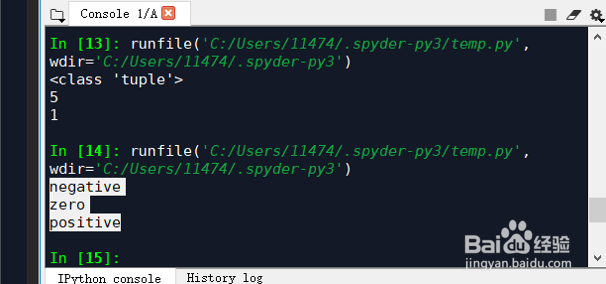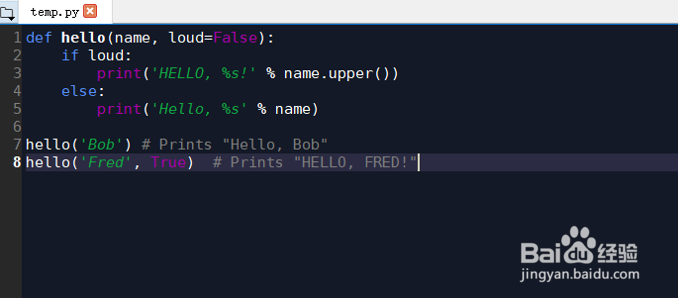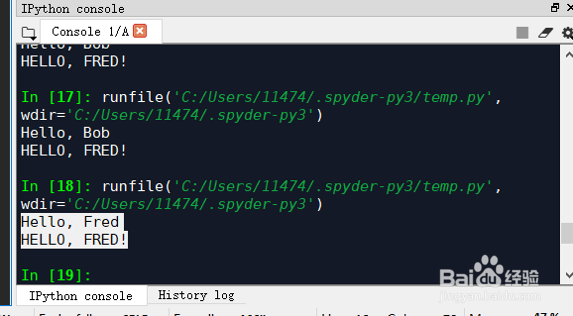1、在python中常常使用def关键字来定义一个函数 。注意缩进。举个例子:def sign(x): if x > 0: return 'positive' elif x < 0: return 'negative' else: return 'zero'for x in [-1, 0, 1]: print(sign(x))# Prints "negative", "zero", "positive"

2、输出结果如下 :negativezeropositive

3、在定义函数的时候我们也可以缺省一些参数。举个例子:def hello(name, loud=False): if loud: print('HELLO, %s!' % name.upper()) else: print('Hello, %s' % name)hello('Bob') # Prints "Hello, Bob"hello('Fred', loud=True) # Prints "HELLO, FRED!"

4、运行结果如下:Hello, BobHELLO, FRED!

5、python定义类的方式也非常直接。class Greeter(object): # Constructor def __init__(self, name): self.name = name # Create an instance variable # Instance method def greet(self, loud=False): if loud: print('HELLO, %s!' % self.name.upper()) else: print('Hello, %s' % self.name)g = Greeter('Fred') # Construct an instance of the Greeter classg.greet() # Call an instance method; prints "Hello, Fred"g.greet(loud=True) # Call an instance method; prints "HELLO, FRED!"

6、运行结果如下:Hello, FredHELLO, FRED!
